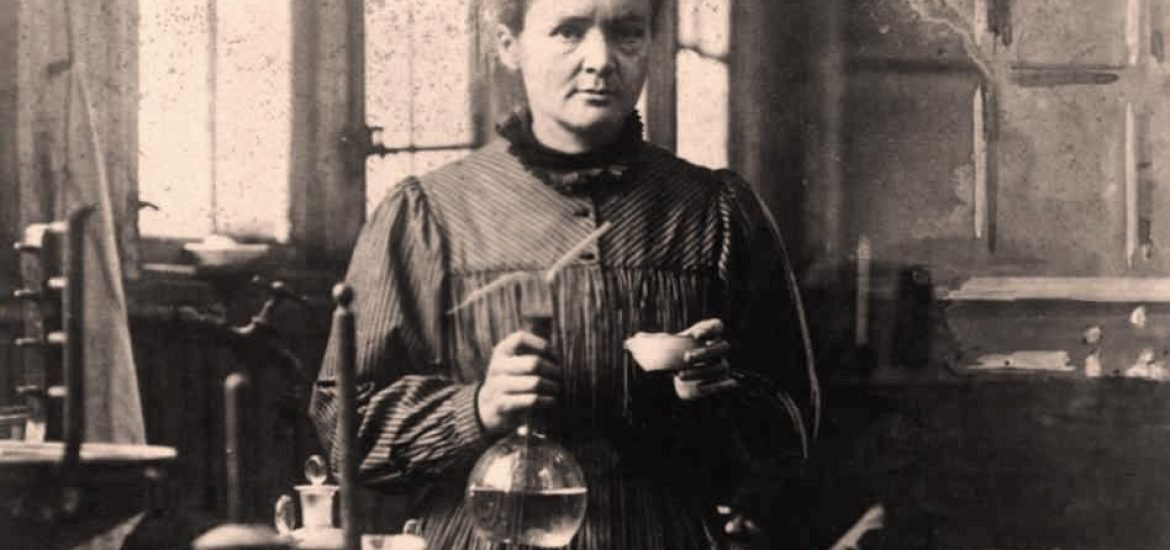
This year’s celebrations will mark the 150th anniversary of the birth of Marie Curie. What could be a finer symbol for European science? A cutting-edge European scientist, born in Poland and buried in the French Pantheon, resting place of national heroes, lauded by French and Polish scientists. Even if the two countries are experiencing a chill in diplomatic relations, Marie Curie is proof that the universal nature of science can bring together great minds across borders. However, when politicians take control of science the result is often the fracturing of this unity. The European debate on glyphosate has recently provided one illustration of this and the US withdrawal from the Paris agreement was another.
Since Popper and Kuhn we know that Science does not adhere to a uniform path of “linear progression without sudden leaps forward” and even less so to an official state sponsored truth. Popper taught us that a scientific hypothesis is falsifiable; Kuhn argued that there are revolutions that overturn the scientific paradigms generations had embraced.
If in the past these debates took place behind the closed doors of the laboratory, these days they unfold live and direct on Twitter. Scientists no longer just have to debate their work within the scientific community. They also have to sort the wheat from the chaff and use public debate to unmask pseudo-science.
What we are witnessing is an ongoing, permanent, and very public dispute. Science has come down from its ivory tower and every laboratory head must answer to an increasingly questioning society. This is not only questioning the potential harmfulness of electromagnetic waves, of biotechnology, of vaccines, or of artificial intelligence, But also the reliability of studies that we are presented with, the rigour of the legislative process or the vested interests involved. In all these areas science has to confront rumours, unmask Fake News and demonstrate its whiter than white credentials.
The white lab coat has been soiled with suspicion. And as there is no escape for science from the trend for the “participative” process, since the French Parliament has organized citizen conferences, it has gradually become a reality that a 2800-page thesis carries less weight than a tweet of 280 characters in tipping the balance of public opinion from one side to the other. Scientific “Reasoning” is attacked from all sides. Social networks have become echo chambers of irrationality, which – in an infinitely cynical paradox – uses the powerful algorithms developed by the scientific method to promote opinions which are there to destroy it. But it would be wrong to blame everything on “Facebook Science”, as some have a habit of doing. Even if social networks have made the voices of whistleblowers easier to hear, anti-science ideologies were already out there, nascent, before we learned to use them.
In my book “La Querelle des OGM” [GMO Controversies] (published by PUF 2006), one of the main premises of the work is based on the distinction between controversy and polemic. Controversies relate to disagreements within the scientific body on the interpretation of facts. By contrast, polemics comprise the ad hominem attacks exchanged by two opposing camps who do not share the same ideology. The fact that scientists sometimes embark on the defence of their thesis in the media before presenting it to their peers has opened a Pandora’s box and enabled the current situation where science is open to the chill winds of criticism from all quarters.
In addition, we should also note the inclusion of the precautionary principle into the scientific debate. Introduced by the French Constitution, scientists are now obliged to answer questions that have no scientific answers (for example the absence of risk). And as nature abhors a vacuum, ideology has rushed in where science has no answers.
Challenged on its very foundations, the scientific community is in the midst of a reorganisation and is trying to find new solutions to tackle today’s challenges and to better answer the questions put before it. While popular science is nothing new and is not lacking in resources, the engagement of scientific communities in the science policy debate is still hesitant. It is, however, essential, now more than ever, because of the crucial importance of scientists also committing themselves.
For more than ten years now I have been promoting the opinions of the scientific community in the media. So why not create a space entirely dedicated to this debate? The European Scientist should inform the general public, as well as provide a platform for European scientists who want to talk about and engage with questions related to science policy – in English, German and French at first and subsequently in other European languages. The floor is open for all debates, which is why sometimes the reader will find find contradictory opinions here – all in the name of having all the sides of the arguments available. We therefore invite you to join the debate and send in your thoughts.
This post is also available in: FR (FR)DE (DE)